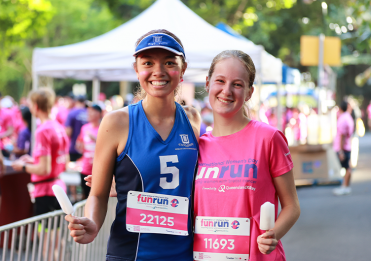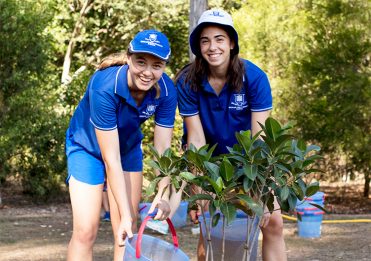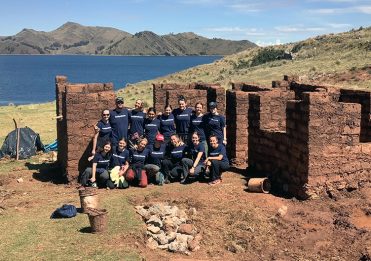Educational institutions play a crucial role in informing and contributing to social change. Girls Grammar has a proud and strong service culture that provides students with opportunities to become young philanthropists determined to fight for a more just and fair world. Students are encouraged to become active citizens and adopt responsibilities in the School’s Service program from Year 7. By participating in a wide range of clubs, activities and service committees, supporting their House Charity, or participating in the Year 10 Community Service program, Grammar girls are encouraged to create meaningful links with the wider community as they raise funds for charities and help create awareness about issues on a local and global scale.
This year, Service Captains, Gemma Grattan (12O) and Victoria Hogan (12W), devised the motto, ‘Service starts with you, share the royal blue’, to encapsulate the nature of service and the role of Grammar girls in inspiring positive change through empathy, inclusiveness and empowerment. In an address at a School Assembly earlier this year, the girls said, ‘we aim to shift the perspective on Service; your actions can inspire change and should never be considered too small or too worthless. Instead, they should be celebrated and encouraged.’
Already, students have participated in the International Women’s Day Fun Run and Pink Stumps Day in support of women with breast cancer, collected goods for the Ecumenical Coffee Brigade Food Drive and volunteered at ‘Grammar Goes Green’, planting native shrubs at the School’s Rangakarra Recreational and Environmental Education Centre.
The School community has also fundraised for flood and drought-affected farmers, and the Second Chance Programme—a charity supporting women experiencing homelessness. While Girls Grammar is one of the largest school charity contributors in Queensland, the School’s Service program is intended to be more than transactional.
Its core aim is to support students in learning the importance of giving back, and inspiring them to contribute to society in significant ways. The value of the Service Program is also measured through the reflection process. Girls share their thoughts, conversations and emotions following the time spent in the service of others. This is a transformative experience as they express how service has created a shift in their thinking and they realise they can actually contribute to a better world, be it on a large or small scale.
Structured reflection in service learning not only acts as a reward, but also makes students more likely to apply critical thinking and develop particular 21st century skills (Butin, 2003). Service learning, such as the Year 10 Community Service Program, is seen to enhance student outcomes, foster more active citizenry, support a more equitable society and reconnect schools with their local communities (Butin, 2003).
Service also enhances girls’ sense of purpose and gratitude, and contributes to their personal, social and emotional development. Through volunteering, students are able to develop empathic, personal ways to interact, including genuine collaboration, effective communication and disciplined self-regulation (BBC, 2019).
Students are able to apply these skills through the Service program’s distributed leadership model where girls from all Year levels hold leadership roles in some capacity, including volunteering at the Service Expo, presenting at assemblies, writing for the School’s publications, or leading a club, activity or service committee.
The ultimate goal, however, is the development of a philanthropic mindset within students with the intention of continuing to give back. Each year, Girls Grammar elects a School Charity to be the recipient of the Student Council’s fundraising efforts.
The 2019 School Charity is the Stars Foundation—an organisation focused on supporting and enabling Aboriginal and Torres Strait Islander girls and young women to make active choices in order to achieve their full potential. The organisation aims to close the gap in health, education and unemployment by promoting health, development and wellbeing in schools in the Northern Territory, Victoria and Queensland.
However, the relationship between the School and charity often extends beyond a single year. Girls Grammar maintains a connection with the organisation, whether it be through the House Charities system or other fundraising and awareness campaigns, to demonstrate the importance of commitment. Such relationships also allow girls to develop authentic connections with service groups in hope that they continue to participate in service long after their time at Girls Grammar.
References
BBC. (2019). From hard facts to soft skills. Retrieved from
http://www.bbc.com/storyworks/future/generation-connect-education-leaders/from-hard-facts-to-soft-skills
Butin, D. (2003). Of What Use Is It? Multiple Conceptualizations of Service Learning with Education. Teachers College Record, 105, 1647-1692.
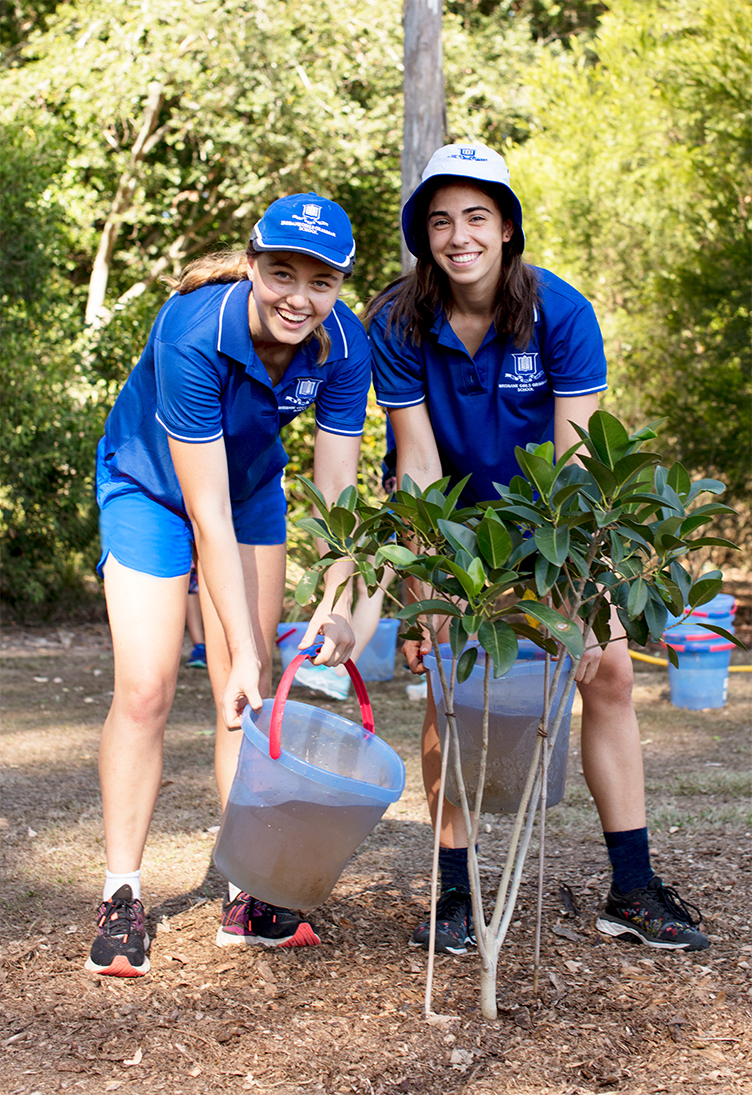
Students planting native trees and shrubs at the Grammar Goes Green event.
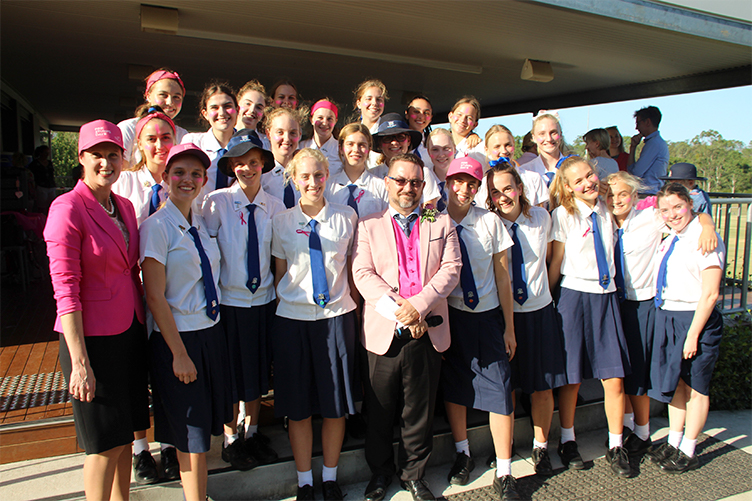
Year 12 students at Pink Stumps Day 2019, held in support of the McGrath Foundation.


